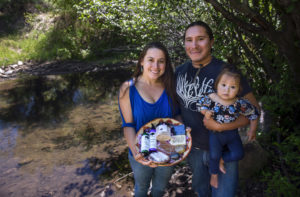
Image courtesy of Carlos Muza. Article by Sandy Nelson.
Predicting consumer behavior can be an obsession for businesses, no matter what their size. Big corporations dedicate entire departments to divining what people will want next so they can be first to offer it, and they invest massive amounts of money into predictive analytics—the mining of massive sets of data for patterns and trends in hopes of giving businesses a competitive edge by helping them predict the future.
Smaller businesses typically don’t have the means or need to invest in the sophisticated types of data crunching that their larger cousins do, but smaller-scale data analysis tools can help them track past and real-time trends and behaviors so they can make fact-based decisions about how to allocate resources. Continue reading








